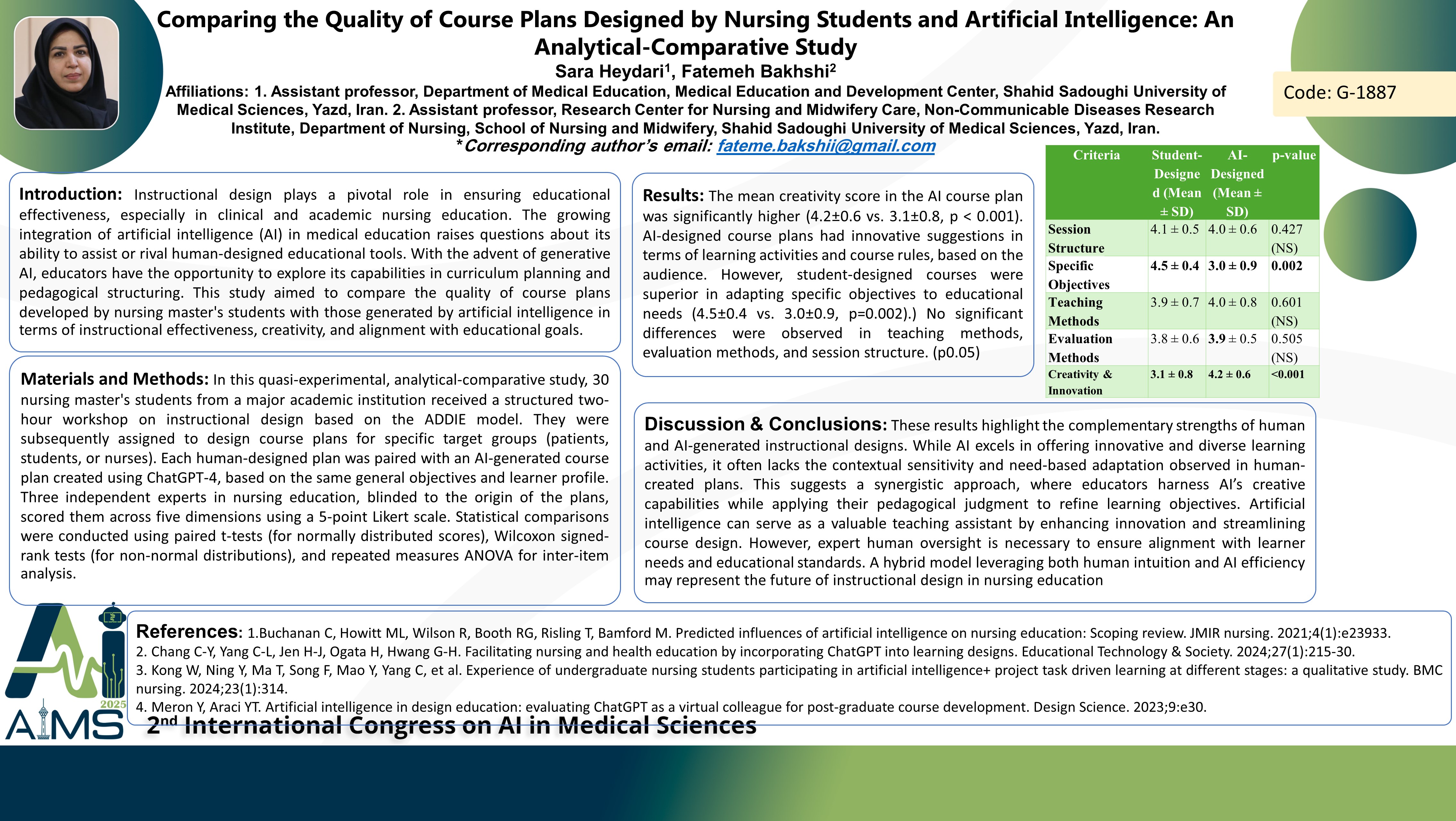Comparing the Quality of Course Plans Designed by Nursing Students and Artificial Intelligence: An Analytical-Comparative Study
Code: G-1887
Authors: Sara Heydari * ℗, Fatemeh Bakhshi
Schedule: Not Scheduled!
Tag: Intelligent Virtual Assistant
Download: Download Poster
Abstract:
Abstract
Introduction: Effective instructional design is a requirement for training postgraduate nursing students. This study used statistical tests to compare the quality of course plans developed by nursing master's students with artificial intelligence. Methods: In this quasi-experimental study, 30 nursing master's students, after receiving instructional design training, prepared course plans for teaching patients, nursing students, and clinical nurses. Then, using the same general goals, the course plans were generated by one of the artificial intelligence tools. The quality of the course plans in five areas (session structure, specific objectives, teaching methods, evaluation methods, creativity and innovation) was evaluated by three experts on a Likert scale (1-5) and compared with paired t-tests, Wilcoxon, and analysis of variance. Findings: The mean creativity score in AI course plan was significantly higher (4.2±0.6 vs. 3.1±0.8, p0.001). AI-designed course plans had innovative suggestions in terms of learning activities and course rules, based on the audience. However, student-designed courses were superior in adapting specific objectives to educational needs (4.5±0.4 vs. 3.0±0.9, p=0.002).) No significant differences were observed in teaching methods, evaluation methods, and session structure. (p0.05) Conclusion: AI is effective in developing innovative course designs and can help teachers as teaching assistants. However, it requires human review to monitor and fine-tune learning objectives. Combining these two methods can lead to optimal instructional design.
Keywords
Artificial Intelligence, Instructional Design, Course Plan
